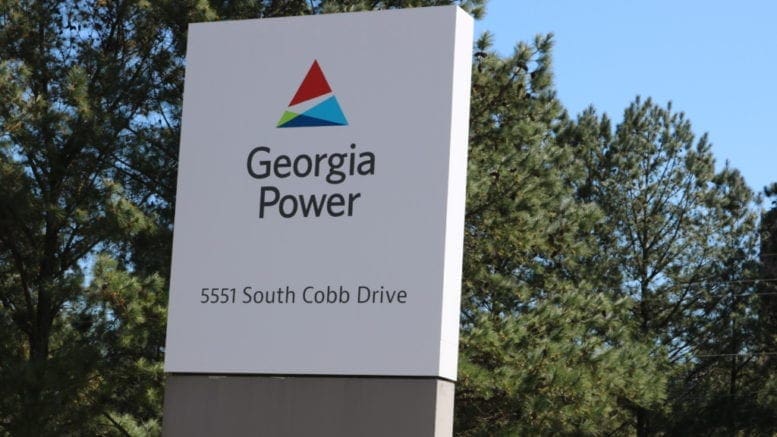by Stanley Dunlap, Georgia Recorder [This article first appeared in the Georgia Recorder, republished with permission]
February 18, 2022
Further setbacks at the snakebit Plant Vogtle nuclear expansion are reportedly expected to result in delays lasting up to six months while the operator added a $920 million charge at the end of last year.
Thomas Fanning, president and CEO of Southern Co., said during Thursday’s earnings call that the parent company of Georgia Power took past repeated disruptions and challenges into account when it revised this timeline for completing the plant’s two final units, with the latest mishap caused by incomplete and missing inspection records that resulted in a backlog of more than 10,000 records.
The completion of the third and fourth reactors at Plant Vogtle, chiefly owned by Southern and its subsidiary Georgia Power, is now projected to be delayed three-to-six months, with the third unit coming on line in March 2023 and the final reactor ready by the end of the year, according to Southern’s report.
“Over the last year a number of challenges including shortcomings, and construction and documentation quality have continued to emerge, adding to project timelines and costs,” Fanning said. “In recognition of the possibility for new challenges to emerge, we further risk adjusted our current forecast by establishing a range of three to six additional months for each unit, and we’ve reserved for the maximum amount.”
Vogtle’s expansion construction costs are expected to rise to more than $30 billion, up from an initial estimate of $14 billion in 2012. As part of an agreement with Georgia Power, which owns 46% of the plant outside of Augusta, the $920 million charge includes $440 million from other utilities involved in the project.
Last year, Georgia Power exceeded a limit of $7.3 billion on how much its 2.6 million customers must pay in capital costs. However, once the expansion is complete, the company can request that the five-member Public Service Commission add other costs to customers’ bills instead of further cutting into its profits or passing them along to shareholders.
Thursday’s announcement is the latest example of Georgia Power and Southern Co. officials announcing significant delays long after they were criticized by PSC regulators and independent consultants after years of continuously overestimating milestones and underestimating costs.
Last June, Georgia Power officials strongly disputed analysts predicting the project would take at least seven months longer than the operator’s timeline of bringing units 3 and 4 into service in November 2021 and November 2022.
Southern and Georgia Power officials were admonished by the consultants for the years of poor oversight the project experienced, including quality control issues that led to an investigation by the Nuclear Regulatory Commission.
Six weeks after the June PSC hearing, Georgia Power announced several months of delays for each unit, which would increase construction costs by $460 million.
Regulators must now also sign off on the troubled inspection documents.
Georgia Conservation Voters Executive Director Brionté McCorkle said it’s like groundhog day hearing about another delay with Vogtle.
“Enough is enough. Georgia Power should be forced to take responsibility for this colossal failure,” McCorkle said. “The PSC and the Georgia Legislature should act now to stop Georgia Power from charging Georgians–who are already feeling a financial squeeze–for its costly and gross mismanagement of this project.”
Vogtle’s nuclear expansion is part of a push to produce cleaner energy as Georgia Power retires its coal-fired power plants. Southern and Georgia Power’s leaders are also preparing for a March 8 deadline when the other utility providers with ownership stakes have to decide how they’ll proceed with the agreement, Fanning said.
“Our priority is bringing Vogtle units three and four safely on and to get it right and to provide Georgia with a reliable carbon free energy resource for the next 60 to 80 years,” Fanning said.
“With this most recent change in project costs and schedule provisions with Vogtle (units) three and four, our co-owner agreement came to the forefront, requiring the owners to affirmatively vote to proceed with the project,” Fanning added. “Vogtle is incredibly important to the state of Georgia and its robust growing economy.”
Georgia Recorder is part of States Newsroom, a network of news bureaus supported by grants and a coalition of donors as a 501c(3) public charity. Georgia Recorder maintains editorial independence. Contact Editor John McCosh for questions: info@georgiarecorder.com. Follow Georgia Recorder on Facebook and Twitter.
